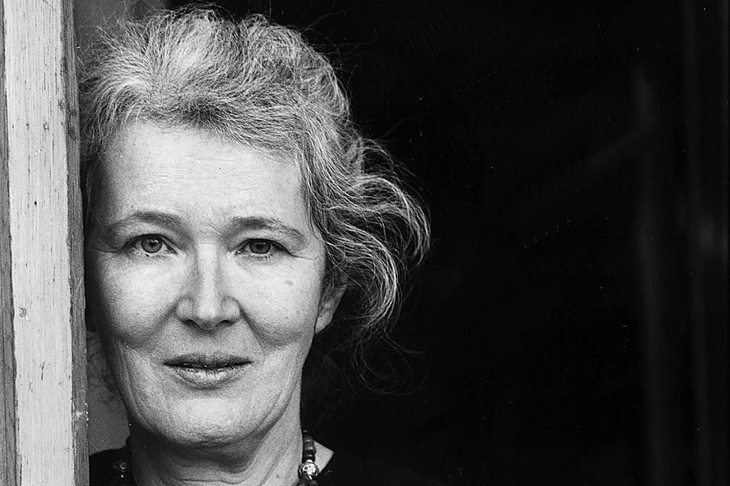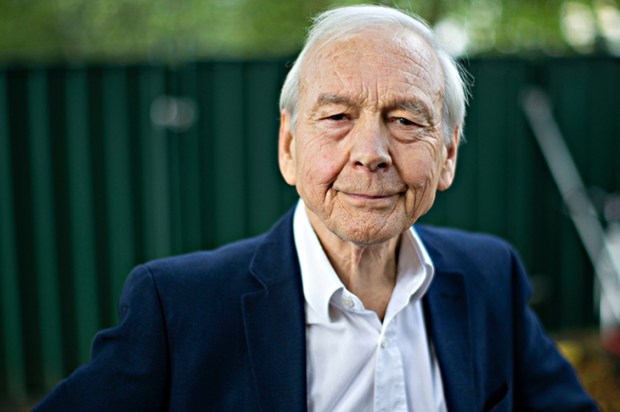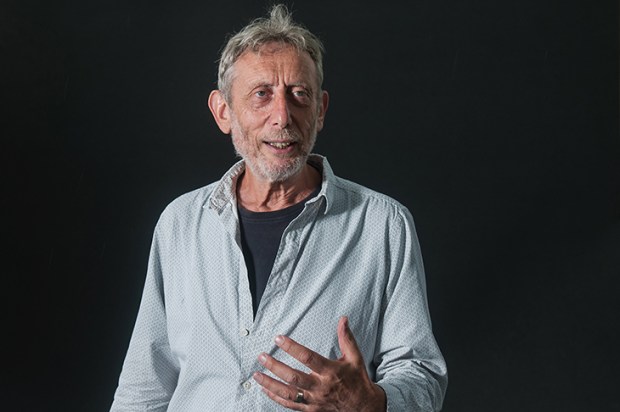The writer Angela Carter (born in 1940) grew up listening to the wireless, her love of stories, magic and the supernatural fed by Children’s Hour, and especially a strange, frightening and yet captivating dramatisation of John Masefield’s novel Box of Delights. In the introduction to Sunday’s Drama on Three, which gave us two of her plays written for radio, Carter (voiced by Fiona Shaw) says that what she particularly likes about the medium is the way the listener has to (or is allowed to) contribute to the narrative, adding their imagination, their mind-pictures, their own way of seeing. Carter, just like Tom Stoppard, Harold Pinter or Howard Barker, really understood how to make the most of radio’s potential to make real the inner voice and relished the freedom to play with text and meaning unbound by concrete limitations.
In Vampirella (first broadcast in 1976 and here directed by Fiona McAlpine) Carter criss-crosses in an instant between subjective and objective reality. She was, she says, inspired to write it by the sound of her fingernails trailing across the top of the radiator in her study while she was sitting at her desk waiting to find something, anything, to write about. That sound made her think of a gilded birdcage, a hand cursed with nails three inches long, ‘fit only for gouging’. The daughter of Count Dracula, last in the line that began with Vlad the Impaler, is trapped in that darkened castle of popular myth somewhere in Transylvania, waiting for someone to come and release her. Up turns a stalwart Englishman, straight out of empire, who’s bicycling across the Carpathian mountains in search of adventure. An unfortunate accident lands him in the castle and at the mercy of those nails (brilliantly voiced by Jessica Raine, moving between menace and seductive charm at a whisper) and Vampirella’s Scottish sidekick, Mrs Beane, a ‘stern,tartan governess’, who ‘has a mouth like a steel trap’.
Carter might indulge in fantasy but her message is always pointed and her language richly coloured yet never indulgent. Sunshine becomes a kind of ‘irradiated darkness’; Vampirella’s hair falls down ‘inconsolably as rain’; the ‘angel of inquietude’ stirs in every corner. After escaping, saved by a passionless kiss and ‘the cold showers of my celibacy’, our Hero arrives in Bucharest to hear about the assassination in Sarajevo. The Count lives on ‘behind every battlefield’.
Doorstep Daughter (produced by Sally Chesworth) on Radio 4 tells a remarkable story. Back in 1990s Watford, Peris and Martin have arrived separately from Kenya, each looking for a better life. They meet at a party and fall in love. Peris soon becomes pregnant, which puts a strain on their relationship. When the baby arrives, how can they continue to party and have fun while working to make enough money and caring for the baby? One day, at six in the morning, Martin calls on his neighbours, the Zafar family, and leaves with them six-month-old Sandra. He’s off to work; Peris is not yet home from her overnight shift in a care home. The families know very little about each other, except that Martin and Peris are Christian while the Zafars are devout Muslims who pray five times a day.
Gradually Sandra spends more and more time with the Zafars, eating pilau rice and chicken rather than pawpaw and avocado, being dressed up in a shalwar kameez and learning how to pray in the Muslim way. Her first word is ‘Abba’, Urdu for Dad. But what happens when Peris and Martin decide they want to leave the UK and move on to Canada? Sandra is now four and has spent far more time with the Zafars, especially their middle daughter Saiqa who has just left school and devotes herself to Sandra, than with her own parents. ‘It was a bit weird. Not normal,’ they all agree. ‘But it worked.’ How?
‘It’s all about humanity. That’s what Christianity teaches you. That’s what Islam teaches you,’ they decide. Broadcast in five short episodes and with a surprise reveal in the fourth episode, the story of Sandra and the Zafars was constructed like a dramatic narrative in the mode of the enormously successful podcast Serial, with very well-crafted interviews, an authoritative narrator voice and lots of sophisticated backing music. Their story pulls you in but the way it’s told is perhaps a little too slick, too polished, masking rather than drawing out the raw truths of the story it tells.
Broadcast a couple of weeks ago, but still available on iPlayer, Cathy FitzGerald’s award-winning programme about a hospice in Margate, Little Volcanoes, takes us right into the heart of life by talking about death. ‘You feel lucky,’ says Zoe who’s just come off her night shift at the hospice. Sometimes she will sit with the same person all night, holding their hand and keeping them calm. ‘It’s sharing in their existence.’ Christine hasn’t told her friends that she’s ill, ‘It’s my business.’ But she’s left everything ready for her children, even preparing letters to send to the gas and electricity supplies once she has died. ‘I’d like them to think Mum is still there to help them.’
Got something to add? Join the discussion and comment below.
Get 10 issues for just $10
Subscribe to The Spectator Australia today for the next 10 magazine issues, plus full online access, for just $10.
You might disagree with half of it, but you’ll enjoy reading all of it. Try your first month for free, then just $2 a week for the remainder of your first year.














Comments
Don't miss out
Join the conversation with other Spectator Australia readers. Subscribe to leave a comment.
SUBSCRIBEAlready a subscriber? Log in